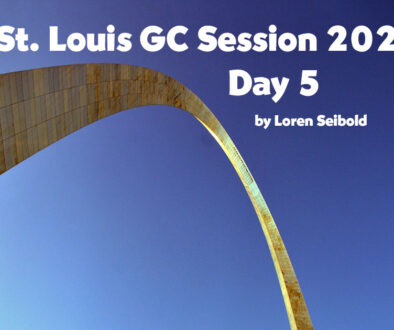Ages of Desire: Sex and Reproduction
by Jack Hoehn | 19 February 2025 |
The book of 1st Esdras tried to be in the Bible (it’s in the Apocrypha by an “Ezra” that sits between the Old Testament and New Testament in some Bibles). It claims that the rebuilding of Jerusalem and its temple happened because three of Persian Emperor Darius’s Jewish bodyguards held a contest over “what the strongest thing in the world” was.
One said alcohol was the strongest thing, because even the strongest man could be taken down by wine. The second (likely trying to kiss-up to the Emperor) said that the king was the strongest, because by a single word he could command whole armies of soldiers to take to the field and lay down their lives by the score.
But the third won hands down when he pointed out that all men, including the king and his army, were equally dominated by women. I quote from 1st Esdras,
“If men…see a woman who is comely in favor and beauty, they let all those things [gold, silver, lands and the wine grown on them] go, and gape after her, and even with open mouth fix their eyes fast on her, and have all more desire for her than for gold….”
It goes on for a couple of paragraphs pointing out how the king’s concubine Apame made a public fool of the emperor himself with no consequence.
The court and king, so says the almost holy book, “shouted and said, Great is truth and strong above all things!” Perhaps the king and women and wine were all involved in this excitement over this “truth,” but the smart young Jew reportedly heard Persian Emperor Darius say, “Inasmuch as you have been found wisest… you shall sit next to me and shall be called my cousin!”
This young bodyguard was Zerubbabel (“born in Babylon”), who did get into four real books of the real Bible (Ezra, Nehemiah, Haggai, and Zechariah), where he isn’t called “Darius’s cousin,” but is listed as “governor of Judah.”
And, he was part of the Davidic lineage that led to Jesus’s being called the son of David.
The power of sex
David and his descendants were good demonstrations of the power of sexual desire being stronger than men’s muscles and determination. Sex led David to polygamy and then to adultery with Bathsheba, and murder of her husband. It led Solomon to so much excess that scholars accuse him of either sexual addiction or imaginary numbers. Yet the beautiful eroticism of the Song of Solomon shows tenderness and love, not the exploitation and male domination that “700 wives and 300 concubines” testify to. This again raises the question if Solomon really had such a harem—or if he really was the same person who wrote the Canticles.
Nakedness and one flesh union is present in Eden before the fall. And polygamy appears before Noah and his flood and persists till 19th-century America, in Mormonism. (Now, we tend to have “serial polygamy”: multiple spouses or partners, but mostly one at a time.) Sex with her slave girl was suggested by Abraham’s wife, and Abraham offered to share his comely wife with both Pharaoh and sheik Abimelech. Jacob bedded two wives and several of their slave girls. Esau had three wives. Need we go on to make the point that the Bible is full of quite liberal sexuality?
 Why sex and why pleasure?
Why sex and why pleasure?
So why sexual reproduction and why orgasms? The Bible has the Creator intentional to make humanity male and female to be fruitful and multiply? Why not reproduce life by budding or cloning? And why is sex such an overwhelming emotional and pleasurable experience as orgasm? As the song said, “It’s delightful, it’s delicious, it’s de-lovely!”
According to evolutionary biologist Elizabeth Lloyd[1] there are over 21 different evolutionary suppositions about how sex and sexual pleasure “evolved” for women without being planned or designed. Her book goes on to show how all 21 suppositions suffer from “one or more debilitating faults.” There is no evidence that that sexual pleasure contributes to “fertility or reproductive success,” which raises the fascinating possibility that sexual pleasure exists solely for pleasure. Just like a mango could still nourish us even if it didn’t taste like a mango. So technically we could reproduce as a necessary duty, instead of reproduction as our greatest pleasure.
Let’s make this fun for them!
That sexual reproduction allows greater diversity and vigor of offspring than budding or cloning is clear. But how did mutual genders evolve, and how did exciting and pleasurable reproduction evolve random mutation by random mutation by random mutation, instead of by an intelligent designer’s saying, “This is going to be complicated and require a lot of engineering, but let’s make this fun for them!”?
Sex controls evolution
Many discussions on the evolution of sexual reproduction begin with sentences like this, “Sexual reproduction is a paradox, an enigma, a mystery.” But they all default to the fact that sexual reproduction is of great benefit, so “It must have evolved, because it exists.”
However, instead of sexual reproduction’s being necessary for speeding up evolution, sexual reproduction actually is a way for slowing down evolution and enhancing survival. The long-age-creationist position is that things do evolve because they were designed to evolve, and that control of evolution was also designed by the precisely imposed complex-specified-information mechanisms of sexual reproduction.
“A complex, troublesome, and risky way of multiplication.”
This paragraph is from Victor P. Shcherbakov, Russian zoologist and evolutionist with a “heretical” idea. He admits that sexual reproduction is a “complex, troublesome, and risky way of multiplication.” But he points out that “sexual reproduction and genetic recombinations … do not produce new alleles but only new combinations of the extant ones.”
“The Weisman’s idea that sex and recombination provide variation for the natural selection to act upon dominates in most of the discussions. But is the ability to evolve rapidly an unambiguous advantage for an entity? Here I am going to substantiate the heretical idea that the main advantage of sexual reproduction is the opposite: the ability to counteract evolution. Natural selection selects those who survive. However, to evolve and to survive are not the same things. Rather, they are opposite things. To evolve means to change, while to survive means to persist. And persistence means also resistance to further changing.”
The fact that sexual reproduction is a rich complex-specified-information system for prevention of random and often terminal evolution (most changes are fatal to the organism) and promoting preservation of a species (such as humans, for example) is not acceptance of an intelligent Designer. But it is just more evidence of specified-complex-information and design in life. That evolution happens and that it happens within systems showing every evidence of design and control does not suggest “selfish genes”[2], nor does it prove “in the beginning God. But sexual reproduction and sexual pleasure are very compatible with a “watchmaker” of foresight and intention that is not blind. The “complex, troublesome, and risky” mechanisms of human sexual reproduction can also be called “making love.”
And according to Jesus, God is love.
[1] Elizabeth A. Lloyd, The Case of Female Orgasm—Bias in the Science of Evolution, Harvard University Press (2005). Page 1.
[2] The “Selfish Gene” deification or demonization by Richard Dawkins (author of The Blind Watchmaker and The Selfish Gene books) is challenged by Shcherbakov: “Genes are a passive memory of the cell, its notebook, not its mind and will. To ascribe the ruling function to the genes is the same as to ascribe the knack to drive a car to a road map, not to a driver.”
 Jack Hoehn is a retired physician living in Walla Walla.
Jack Hoehn is a retired physician living in Walla Walla.




